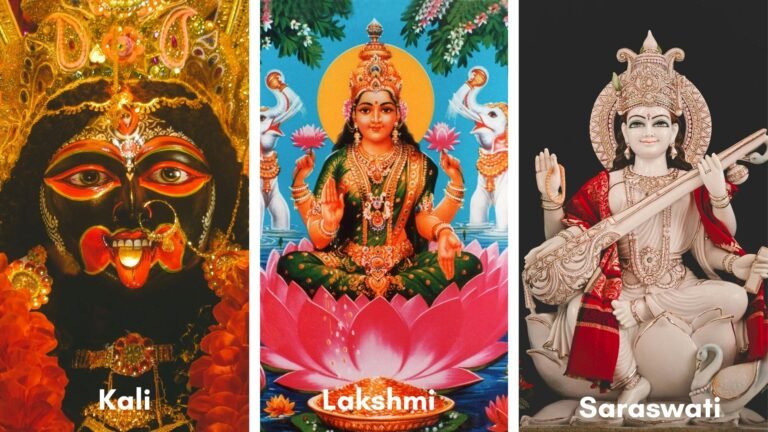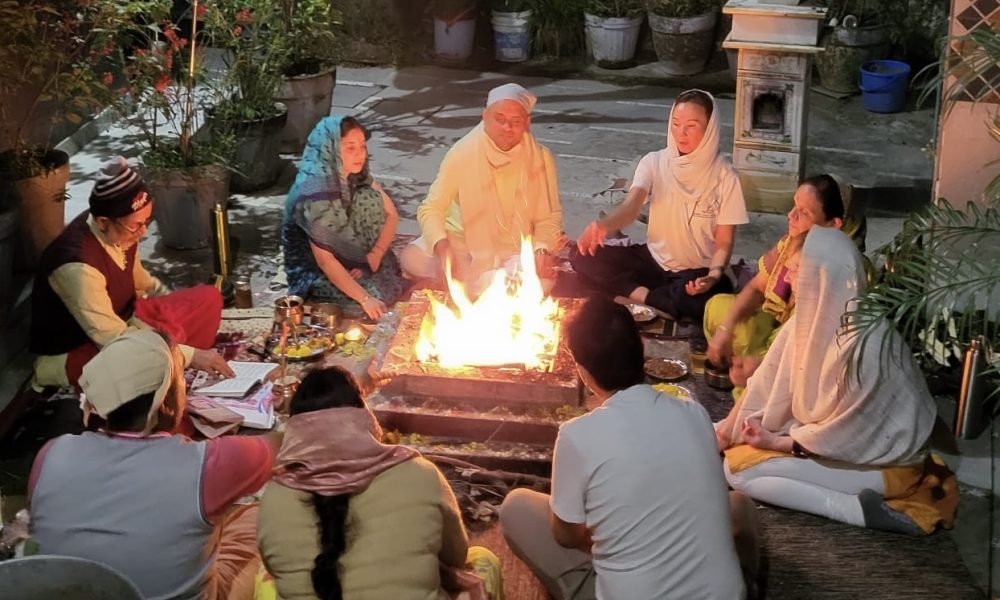Himalayan Tradition
Discover your inner power
Years of Mastery
Highly experienced teacher
Holistic approach
Yoga & ayurveda practices
Certified therapist
Authentic Ayurveda Kerala Cert.
Navratri is one of the most important festivals in the yogic and spiritual calendar. At the Vedic Yoga Centre in Rishikesh, senior teacher Shailendra Singh Negi shared on March 30, 2025, how these nine days offer an opportunity to honour the Divine Mother and reconnect with the power of Shakti—the energy that sustains all of creation.
Navratri is not only a cultural celebration. It is an invitation to look inward, to refine our lifestyle, and to align our daily actions with higher awareness.
Shakti is the cosmic energy behind every movement in life. During Navratri, we consciously turn toward this energy. A traditional way to do this is by following a sattvic lifestyle—choosing fresh, light, vegetarian food, keeping discipline, and living simply for nine days.
A sattvic diet cleanses the body and makes the mind clearer.
Eating lightly—fruits, juices, or fresh meals—creates sensitivity to subtle vibrations.
Discipline and awareness in daily life prepare us for deeper practice and mantra chanting.
Fasting can be part of this, but only if done with awareness. It should not create stress or comparison with others. The essence is to use food and lifestyle as tools to conserve energy, so that more time and focus can be given to practice.
The timing of Navratri itself is not random. The dates are chosen by astrologers because the cosmic energy is naturally aligned to support deeper awareness during these periods.

Fasting is one of the most recognised practices of Navratri. Its real purpose is to:
Give the body a break from habitual patterns.
Cleanse physically and mentally.
Support focus on mantra and prayer.
Cultivate humility and inner strength.
Fasting must be done wisely. For some, light fruit or juice may be better than complete abstinence. The aim is not to punish the body but to make it lighter and more alert, while keeping the mind steady on higher awareness.
Across cultures—Christianity’s Lent, Islam’s Ramadan—we find fasting as a tool for purification and reflection. In Hindu tradition, however, it is guided by experience and not by imposition. Each person chooses what is right for them.
Navratri represents three key expressions of Shakti:
Iccha Shakti (the power of desire) – energy of Goddess Durga.
Kriya Shakti (the power of action) – energy of Goddess Lakshmi.
Jnana Shakti (the power of wisdom/knowledge) – energy of Goddess Saraswati.
These powers live within all of us. When unconscious, they can drain our vitality. When aligned consciously through sattvic living and spiritual practice, they bring clarity, rhythm, and peace.
Navratri reminds us that desire, action, and wisdom are not separate—they are different functions of one force working through us. The festival is an opportunity to consciously direct this energy.

Any discipline can turn into ego if we compare, judge, or force it upon others. True fasting makes us humble. It helps us connect inward, not create conflict.
The question to ask is: Am I fasting to deepen my awareness, or to prove something?
When the intention is right, even the simplest practice carries profound power.
At its heart, Navratri is a time to return to clarity. Outer rituals are meaningful, but the deeper significance lies in:
Growing awareness and stillness.
Purifying body and mind through sattvic living.
Aligning desire, action, and wisdom.
Honouring the Divine Mother as the Shakti within.
If your Navratri practice brings you closer to awareness, compassion, and peace, then you are celebrating in the truest sense.

At the Vedic Yoga & Ayurveda Retreat Centre in Rishikesh, Navratri is celebrated twice each year—around March/April and again in October/November. Guests are invited to join the daily worship of the Divine Mother through:
Bhakti Yoga (devotion and chanting)
Hatha Yoga and Kundalini practices
Meditation and mantra
Panchakarma detox and Ayurveda
Whether you come for a retreat, satsang, or yoga teacher training (200 or 300-hour), Navratri offers you the chance to directly experience the power of Shakti in your own life.
We welcome you to join us in the Himalayas for the next Navratri celebration.
Enter your email below
© 2025 Vedic Yoga Trust®. All rights reserved.